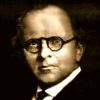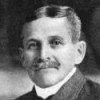Learn how to cook! That’s my invariable answer when I am asked to give forth with money-saving recipes, economy tips, budget gourmet dinner menus for six people under ten dollars, and the like. Learn how to cook! That’s the way to save money. You don’t save it buying hamburger helpers, and prepared foods; you save it buying fresh foods in season or in large supply, when they are cheapest and usually best, and you prepare them from scratch at home. Why pay for someone else’s work, when if you know how to do it, you can save all that money for yourself? Knowing how to do it also means doing it fast, and preparing parts of a dish or a meal whenever you have a spare moment in the kitchen. That way, cooking well doesn’t take a great deal of time, and when you cook well, you’ll be eating far better meals than you could buy from the freezer, or at a restaurant.
Julia Child (1912-2004) American chef and writer
Julia Child’s Kitchen, Introduction (1975)
(Source)
Quotations about:
self-reliance
Note not all quotations have been tagged, so Search may find additional quotes on this topic.
CORIOLANUS:I’ll never
Be such a gosling to obey instinct; but stand,
As if a man were author of himself,
And knew no other kin.William Shakespeare (1564-1616) English dramatist and poet
Coriolanus, Act 5, sc. 3, l. 38ff (5.3.38-41) (c. 1608)
(Source)
The art of war deals with living and with moral forces. Consequently, it cannot attain the absolute, or certainty; it must always leave a margin for uncertainty, in the greatest things as well as in the smallest. With uncertainty in one scale, courage and self-confidence should be thrown into the other to correct the balance. The greater they are, the greater the margin that can be left for accidents.
[Die Kriegskunst hat es mit lebendigen und mit moralischen Kräften zu thun; daraus folgt, dass sie nirgends das Absolute und Gewisse erreichen kann; es bleibt also überall dem Ungefähr ein Spielraum, und zwar eben so gross bei dem Grössten, wie bei dem Keinsten. Wie dieses Ungefähr auf dereinen Seite steht, muss Muth und Selbstvertrauen auf die andere treten und die Lücke ausfüllen. So gross, wie diese sind, so gross darf der Spielraum für jenes werden.]
Karl von Clausewitz (1780-1831) Prussian soldier, historian, military theorist
On War [Vom Kriege], Book 1, ch. 1 “What Is War? [Was ist der Krieg?],” § 22 (1.1.22) (1832) [tr. Howard & Paret (1976)]
(Source)
(Source (German)). Alternate translations:
The art of war has to deal with living and with moral forces; the consequence of which is that it can never attain the absolute and positive. There is therefore everywhere a margin for the accidental; and just as much inthe greatest things as in the smallest. As there is room for this accidental on the one hand, so on the other there must be courage and self-reliance in proportion to the room left. If these qualities are forthcoming in a high degree, the margin left may likewise be great.
[tr. Graham (1873)]
The art of war has to do with living and with moral forces; from this it follows that it can nowhere attain the absolute and certain; there remains always a margin for the accidental just as much with the greatest things as with the smallest. As on the one side stands this accidental element, so on the other courage and self-confidence must step forward and fill up the gap. The greater the courage and self-confidence, the larger the margin that may be left for the accidental.
[tr. Jolles (1943)]
HELENA: Our remedies oft in ourselves do lie,
Which we ascribe to Heaven.William Shakespeare (1564-1616) English dramatist and poet
All’s Well That Ends Well, Act 1, sc. 1, l. 222ff (1.1.222-223) (1602?)
(Source)
Truth gains more even by the errors of one who, with due study and preparation, thinks for himself, than by the true opinions of those who only hold them because they do not suffer themselves to think.
John Stuart Mill (1806-1873) English philosopher and economist
On Liberty, ch. 2 “Of the Liberty of Thought and Discussion” (1859)
(Source)
It must be remembered also that he who can talk with himself has no need of another’s conversation.
[Etinim, qui secum loqui poterit, sermonem alterius non requiret.]
Marcus Tullius Cicero (106-43 BC) Roman orator, statesman, philosopher
Tusculan Disputations [Tusculanae Disputationes], Book 5, ch. 40 (5.40) / sec. 117 (45 BC) [tr. Peabody (1886)]
(Source)
(Source (Latin)). Alternate translations:
For he that can speak with himself; will not much need the Discourse of another.
[tr. Wase (1643)]
Whoever can converse with himself doth not need the conversation of another.
[tr. Main (1824)]
For the man who can speak with himself, does not require the discourse of another.
[tr. Otis (1839)]
Whoever can converse with himself doth not need the conversation of another.
[tr. Yonge (1853)]
One who can converse with himself will not miss the conversation of someone else.
[tr. Douglas (1990)]
He who can talk to himself, will have no need of another’s conversation.
[tr. @sentantiq (2012)]
A man who is able to hold conversation with himself will not need another with whom to converse.
[tr. Davie (2017)]
You cannot bring about prosperity by discouraging thrift.
You cannot help small men by tearing down big men.
You cannot strengthen the weak by weakening the strong.
You cannot lift the wage earner by pulling down the wage payer.
You cannot help the poor man by destroying the rich.
You cannot keep out of trouble by spending more than your income.
You cannot further the brotherhood of man by inciting class hatred.
You cannot establish security on borrowed money.
You cannot build character and courage by taking away men’s initiative and independence.
You cannot help men permanently by doing for them what they could and should do for themselves.William J. H. Boetcker (1873-1962) German-American religious leader, author, public speaker [William John Henry Boetcker]
“The Industrial Decalogue” (1916)
Often referred to as "The Ten Cannots," and also often misattributed to Abraham Lincoln.
Don’t believe the world owes you a living. The world owes you nothing. It was here first.
Robert Jones Burdette (1844-1914) American humorist, lecturer, clergyman
“Advice to Young Men,” lecture (1833)
Quoted in the Duluth Evening Observer (1 Feb 1883). Frequently misattributed to Mark Twain. See here for more information.
It is all right to tell a man to lift himself up by his own bootstraps, but it is a cruel jest to say to a bootless man that he ought to lift himself up by his own bootstraps.
Never trouble another for what you can do yourself.
Thomas Jefferson (1743-1826) American political philosopher, polymath, statesman, US President (1801-09)
Letter to Thomas Jefferson Smith, “A Decalogue of Canons for Observation in Practical Life,” #2 (21 Feb 1825)
(Source)
The real “haves” are they who can acquire freedom, self-confidence, and even riches without depriving others of them. They acquire all of these by developing and applying their potentialities. On the other hand, the real “have nots” are those who cannot have aught except by depriving others of it. They can feel free only by diminishing the freedom of others, self-confident by spreading fear and dependence among others, and rich by making others poor.
Eric Hoffer (1902-1983) American writer, philosopher, longshoreman
The Passionate State of Mind, Aphorism 115 (1955)
(Source)
Endeavor to make thy own Company pleasant to thee.
Thomas Fuller (1654-1734) English physician, preacher, aphorist, writer
Introductio ad Prudentiam, Vol. 1, # 99 (1725)
(Source)
Who would be free themselves must strike the blow.
George Gordon, Lord Byron (1788-1824) English poet
Childe Harold’s Pilgrimage, Canto 2, st. 76 (1818)
(Source)















